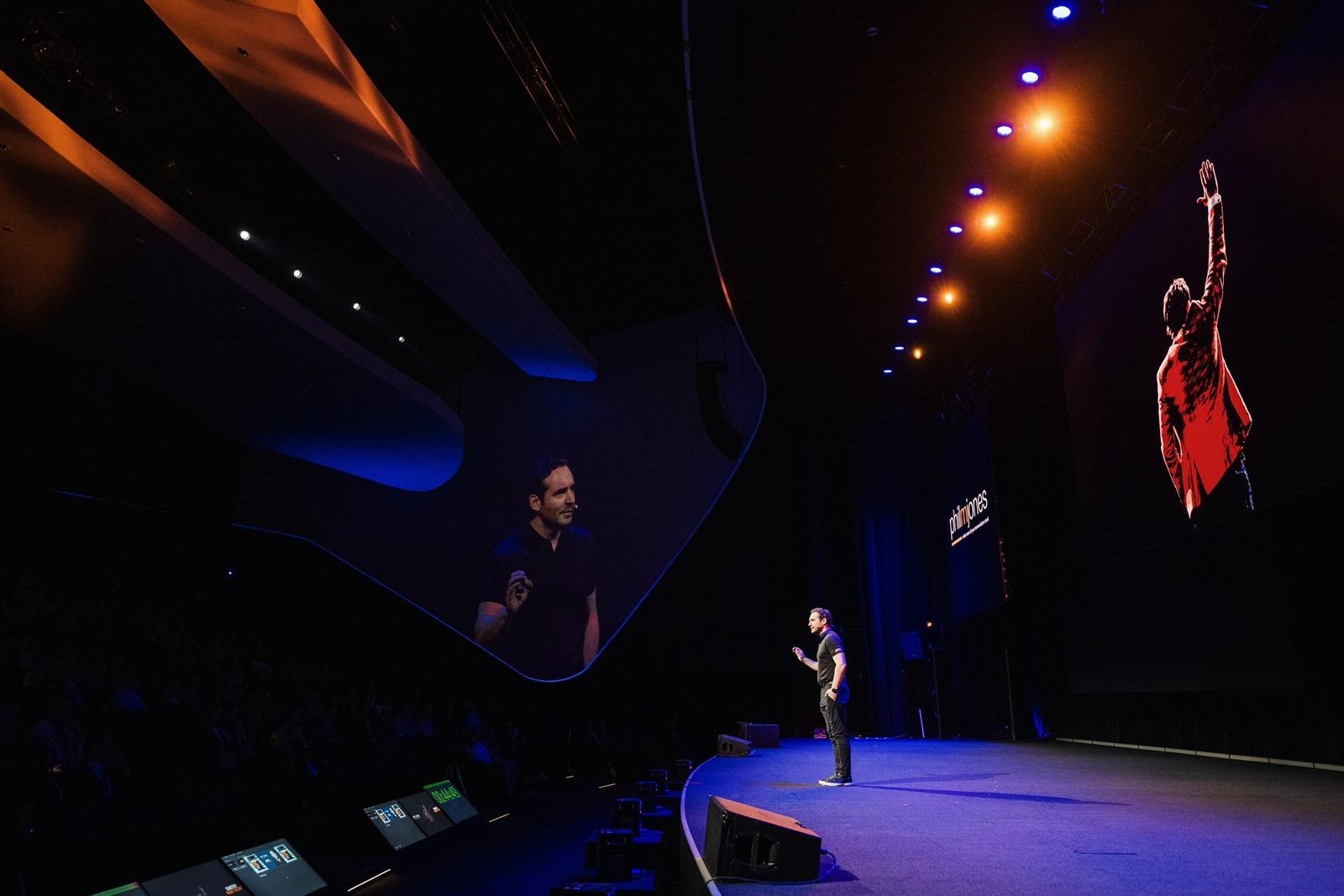Time and time again, I stand in front of audiences full of sales professionals and business owners and ask for a show of hands to the question, “Who would like more customers?” I always see a room full of raised hands. When further questioned about how many more, the room responds with answers like “a lot” or “as many as I can get.” So what’s stopping them?
Regardless of the size of the business, the no. 1 challenge I hear from salespeople is that they just wish they could get in front of more of the right kind of people. I have literal stacks of proven ideas to get you in front of the right kind of people, but what I’ve noticed is that it’s the constant oversight of the basics that continually prevents us from reaching the success of which we are all capable.
We all want more business and we know that activity drives results. However, having a winning strategy is the special sauce that allows high levels of activity to deliver high-quality results. Let’s take a step back and consider how being brilliant at the basics can give us the winning edge, help us stand out from our competitors and put us in front of more of the right people.
Stop Looking for a Needle in a Haystack
Striving for more and having huge ambition are qualities that have fueled the sales profession since the beginning of time. This enthusiasm can also be an enormous barrier to creating opportunities. Too many salespeople are simply focused on striving for more without having complete clarity on what “more” looks like. This results in any success really being created purely by their massive activity levels. I’m sure you can tell that this strategy is the opposite of efficient.
Before you rush out into the market, it makes complete sense to step back and decide exactly what your ideal customer looks like. As salespeople, we have the privilege of being able to choose our customers. Not enough of us actually take advantage of that choice. Instead of looking aimlessly for anybody and everybody, get laser-focused on exactly what your ideal customer looks like, to the point where you could describe them to a stranger like you would a missing person. Once you have that focused description in your mind, you will see opportunity more often, get more of the right kind of customers and be more targeted in all of your activity.
The additional benefit you gain when you can explain each of your target markets is the ability to use the support of others to help find them. Just like a missing person, you can describe them to everyone you meet and let them either introduce you to people or opt in to become a potential customer.
I’m not saying that you will only deal with people who fit your perfect description, but simply that being more targeted means you get lucky more often. It’s like playing mini-golf; if you walk down to the hole and plot out your ideal trajectory in advance, you’re more likely to get a hole-in-one than if you hit the ball randomly.
Ask for the One Thing Everyone Loves to Give
What I have learned about decision-makers is that they are typically busy people who massively value their time and often have a significant ego. Given that they also tend to be very well-protected by trained gatekeepers, crafting the perfect message to catch their attention at the right time can be a huge challenge. It can feel like you’ll never get your opportunity.
There is one thing that every important person loves to give. Requesting it can grant you a seat in front of the most guarded leaders with relative ease. For me, this simple technique has resulted in winning appointments with countless CEOs, sales directors, celebrities, sports personalities and multi-millionaire business owners. The technique? Simply asking these people to share their opinion on something.
It can be a tiny request that opens the door to get you in front of these important people and gives you the chance to build a relationship. After all, everybody loves to be asked for their opinion — it’s a sign of respect. Keeping the remainder of your request vague triggers a feeling of intrigue and means they have to meet you to figure out what your appointment is really about. I’m sure you have some reason to seek the opinion of your most desired prospect already!
Learn from Chocolate Shops
A short while ago, I was shopping in Stratford-upon-Avon when one of my little girls needed to use the restroom. As the girls went off to hit the ladies’ room, I was left doing the one thing I hate the most: waiting. This predicament left me scanning the cobbled streets on a Saturday morning, looking for something to occupy my mind, when I was surprised to see a small boutique fudge shop absolutely teeming with customers.
I was trying to work out why this shop was so remarkably busy compared to every other store on the street. I was certain that all those people had not woken up that morning and made a special trip just to buy some fudge. I kept watching and moments later, the shop emptied and out came an attractive woman with a tray of samples, stopping passersby and enticing them to enter the shop. Minutes later, the shop was full again and I just had to join the crowd to see inside. I left the store several dollars lighter with three heaping bags of fudge.
This experience taught me a number of things. It reminded me of the ability to sell things to people who have not already decided to buy, the power of creating a crowd and, above all else, the principle of attracting far more potential customers by “showing, not telling.” If the shop had a sign claiming it produced “the finest fudge in town,” it would have attracted far fewer patrons. It was the fact that it stepped out and demonstrated the quality of its product that attracted the crowds.
Beef up Your Brochure
Sticking with the theme of showing rather than telling your potential customers what you do, it continues to surprise me that so many company brochures and websites do nothing more than tell the potential customer what the service is in the barest terms. Let’s be honest and ask ourselves how often leaving a brochure has resulted in a customer calling us up at a later date, ready to take the first step. Rarely to never, right?
If we want a tool to help us break through doors, then it must be valuable to the recipient. We have to craft something they can use, will be kept around for a while and ideally demonstrates your expertise. In my business, this is easy, as I use my books and podcast appearances for this purpose. Consider what it could be in your business.
Think about the challenges your target customers have and look to demonstrate that they may need some help to overcome this challenge, provide them with a tool to help them get through it and assure them that you know your stuff. I have seen marketing companies use SEO guides, engineering companies provide technical explanation guides, catering companies give useful tips on arranging your event and countless others. By demonstrating your expertise and providing something of value, you’ve put yourself in a situation where when the potential customer realizes they need your service, you’re the only company in question.
Listen to the Words of Columbo
Perhaps you’re familiar with a certain TV detective of the past — you know, the one who came after the original Sherlock Holmes but before the Benedict Cumberbatch version — named Columbo. He was famous for one set of words that he’d utter as he was leaving a conversation, when the suspect’s guard was down and he had the chance to gain the key piece of information he needed to solve the crime. As he was exiting, he would simply say, “Just one more thing…” and this allowed him to have the full attention of his suspect in a vulnerable position and ask the killer question.
We often find ourselves talking with either key prospects or people who could lead us to key prospects, yet we find it difficult to frame the conversation the way we would like. Just imagine how you could create “Columbo moments” in these conversations and then either introduce your key opportunity or ask for an introduction to the key person within the organization you are pursuing.
Value Your Client’s Time
We all know that if you don’t ask, you’ll never know. Yet quite often, the reason that we’re not getting the opportunities we would like is that we’re not asking for them. It is highly unlikely that you’ll gain more appointments with key decision-makers than the appointments you ask for. Considering that many salespeople are terrified of confrontation and hide behind email and direct mail to capture their prospects’ attention, you can achieve a lot by just picking up the phone. In doing so, you must be aware of the fact that their time is precious.
At this point, you are looking to sell the appointment, not your product or service. Keep the conversation short, give away as little as possible and be certain that it is just a short meeting. The goal is to make it incredibly easy for them to say yes. Ask for their opinion, say that the meeting will be just 10 to 15 minutes and then confirm that you are requesting that meeting. And try asking for a meeting at ten to the hour, a quarter to the hour, ten past the hour or a quarter past the hour. You will have far better conversion rates than if you asked for appointments on the hour.
Afterwards, offer just two dates on which you are available, followed by, “When suits you best?” This question typically brings you to a swift agreement on one of the dates or to the suggestion of an alternative. Either way, you get your appointment.
Discover the Missing Ingredient
I am sure that among the ideas I have shared today, there are a number of actionable items that you can take away to help you improve your results in winning meetings with decision-makers. But there is one simple quality that can be the difference between success and failure: how hard you try and keep getting knocked back before you give up. I have had the privilege of studying and interviewing a huge number of very successful people, and I’ve learned a lot about what it takes to reach high levels of success. What I’ve taken from countless “overnight success” stories is that none of them actually happen overnight.
The prizes worth winning never come easily. Persistence, resilience and hard work are all essential qualities when it comes to knocking down challenging doors. People love doing business with those who deeply want to work with them. Sometimes people will even continually put you off just to test how much their attention means to you.
That’s why it’s worth picking your prospects carefully and ensuring that you are prepared to see it to the end and do whatever it takes.













